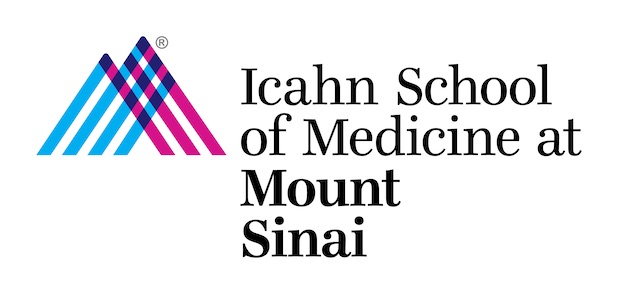Assessing and supporting caregivers of people with serious illness.
Reducing Risks for Older Adults
What You’ll Learn
- List the 4Ms of the Age-Friendly Health Systems framework
- Identify older adults at risk for poor surgical outcomes
- Explain the diagnosis of delirium and discuss its impact on the older adult patient
- Recognize the impact of high anticholinergic drug burden
Did you know it is estimated that delirium goes undiagnosed in more than 50% of cases? This course provides context and best practices for systematically identifying older adults who are at risk for poor outcomes, including falls, delirium, and caregiving challenges when they are admitted to the hospital or surgery center. Learners will gain familiarity with the Institute for Healthcare Improvement’s Age-Friendly Health Systems framework, and will use the program’s 4Ms (What Matters, Medication, Mentation, Mobility) to practice harm reduction and age-friendly care. Special emphasis is placed on steps to assess for and reduce risks of delirium, and ways to prevent patient harm by addressing polypharmacy and reducing anticholinergic drug burden for the older adult.
What You’ll Earn
Only CAPC members who are logged in can earn the following free Continuing Education Credits:
- 1.50 AMA PRA Category 1 Credit(s)™
- Case Management: 1.00 CE
- Nursing: 1.50 CNE
- Social Work: 1.00 CE (NYSED)
Social work credits are approved by the New York State Education Department. Social workers licensed outside of New York should contact their regulatory board to determine course approval for continuing education credits.
To take this course, log in. Or, check here to see if your organization is a member.
LoginTake the course
Take the post-test
Complete evaluation
Download your certificate
Tools & Resources
A one-page document that translates the 4Ms of Age-Friendly Health Systems into action.
Training and clinical tools for managing pain in patients living with serious illness, with a focus on safe opioid prescribing and risk assessment for substance use disorder.
This interactive whodunit game challenges learners to conduct a thorough clinical investigation of a patient with delirium to diagnose the cause(s).
This interactive escape room game challenges learners to conduct a thorough assessment of a patient whose multiple medications may be causing adverse effects, and determine which one(s) are candidates for deprescribing.
This document details medications potentially to avoid or consider with caution because they often present an unfavorable balance of benefits and harms for older people.
Use this calculator to evaluate medications for their likelihood to cause confusion, dizziness, and falls in older adults.
The Confusion Assessment Method is tool that identifies delirium identification including diagnosis, severity, and behavioral subtype.
A care manager specific list of risk reduction tips for the care of older adults.
Course Directors
Accreditations and Disclosures
Physicians
The Icahn School of Medicine at Mount Sinai is accredited by the Accreditation Council for Continuing Medical Education (ACCME) to provide continuing medical education for physicians.
Icahn School of Medicine at Mount Sinai designates this enduring material for a maximum of 1.50 AMA PRA Category 1 Credit™. Physicians should claim only the credit commensurate with the extent of their participation in the activity
CME Released: 2/15/2024; Valid for credit through 2/15/2026.
Estimated Time of Completion for CME: 90 minutes
Successful completion of this CME activity, which includes participation in the evaluation component, enables the participant to earn 1.50 MOC credits in the American Board of Internal Medicine's (ABIM) Maintenance of Certification (MOC) program. It is the CME activity provider's responsibility to submit participant completion information to ACCME for the purpose of granting ABIM MOC credit.
Physician Assistants
The American Academy of Physician Assistants (AAPA) accepts credit from organizations accredited by the ACCME. Icahn School of Medicine at Mount Sinai designates this enduring material with 1.50 AMA PRA Category 1 Credits™ as specified, which can be applied to the continuing education of Physician Assistants. Physician Assistants should claim only the credit commensurate with the extent of their participation in the activity.
Nurses (Registered Nurses, Advanced Practice Registered Nurses, Licensed Nurses)
This nursing continuing professional development activity was approved by Connecticut Nurses’ Association, an accredited approver by the American Nurses Credentialing Center’s Commission on Accreditation.
CNE Released: 10/27/2022; Valid Credit through 10/27/2024
Estimated Time of Completion / CNE Contact Hours: 90 minutes / Contact Hours 1.50
Social Workers
This program is approved by the National Association of Social Workers (Approval # 886437049-8014) for 1.0 continuing education contact hours effective 10/02/2023-10/31/2024.
Center to Advance Palliative Care SW CPE #0257 is recognized by the New York State Education Department's State Board for Social Work as an approved provider of continuing education for licensed social workers effective 7/31/2024 - 7/31/2027. This program has been approved for 1.0 continuing education contact hours.
Certified Case Managers
This program is approved by The Commission for Case Manager Certification (Approval # 240002858) to provide 1.0 continuing education credits to CCM® board-certified case managers, effective 10/02/2024 - 10/02/2025.
Verification of Attendance (VOA)
All users that are not eligible for continuing education will receive a Verification of Attendance certificate upon completion of the course.
Faculty Disclosure Policy
It is the policy of Icahn School of Medicine at Mount Sinai (ISMMS) to ensure objectivity, balance, independence, transparency, and scientific rigor in all CME-accredited educational activities. All faculty participating in the planning or implementation of an activity accredited by ISMMS are expected to disclose all of their financial relationships with ineligible companies existing within the prior 24 months. All relevant financial relationships have been mitigated and disclosed to learners before the activity takes place. Presenters must also make a meaningful disclosure to the audience of their discussion of unlabeled or unapproved drugs or devices. This information will be available as part of the course material.
None of the individuals in control of content have relevant financial relationships to disclose. All relevant financial relationships have been mitigated.
Course Media Instructions
Software Requirements: CAPC’s online curriculum, tools and technical assistance are designed to be fully compatible through multiple platforms: computer, smartphone (iOS or Android) or tablet running the following web browsers: Google Chrome, Mozilla Firefox, Safari, and Microsoft Edge.
Content: Each course is comprised of interactive learning components (articles, tools, or supporting materials), video and audio. The learner will be expected to complete various interactive processes such as matching, simulated clinical decision-making, fill in the blanks, and highlighting content.
To successfully earn credit, participants must complete the activity online, receive a minimum score of 80% on the post-test, and complete the course evaluation. A printable certificate of completion or a continuing award document specific to the discipline will be awarded.
Target Audience: Each program is developed for chaplains/spiritual counselors, nurses, physicians, physician assistants, social workers, case managers, palliative care program leaders, and healthcare leaders (hospital, health system and community care).
Activity Description/Statement of Needs: CAPC’s online curriculum provides training in two critical areas. Technical assistance courses are designed to help palliative care program leaders address key challenges such as implementing palliative care in community health care settings. Clinical coursework provides fundamental training in pain and symptom management, communication, and other key skills needed to work with patients with serious illness.
Disclaimers: The opinions expressed in the courses are those of the authors and do not necessarily represent the views of the sponsor, the educational partner, or the supporter. Please review complete prescribing information of specific drugs or combination of drugs, including indications, contraindications, warnings, and adverse effects before administering pharmacologic therapy to patients.
Activities do not contain information on commercial products/devices that are unlabeled for use or investigational uses of products not yet approved.
Copyright Information: All rights reserved by the Center to Advance Palliative Care (CAPC). No materials may be used or reproduced in any manner whatsoever without written permission except in the case of brief quotations embodied in articles or reviews.
Privacy Information: To read CAPC’s privacy policy, click here.
Course Faculty
Constance Dahlin, MSN, ANP-BC, ACHPN, FPCN, FAAN. Consultant, Center to Advance Palliative Care.
Jaime Goldberg, MSW, LCSW, ACHP-SW. PhD student, University of Wisconsin-Madison School of Social Work.
Susan Heisey, LCSW-MSW, ASW-G. Hospital Elder Life Program Manager, Inova Fairfax Hospital.
Laura Joans, RN, APRN. Nurse Practitioner, Blue Grass Care Navigators.
Peer Reviewers
Karl Bezak, MD. Clinical Assistant Professor of Medicine, Palliative Care and Medical Ethics, University of Pittsburgh (UPMC)*
Gabrielle Langmann, MD. Clinical Instructor of Medicine, Division of General Internal Medicine, Section of Palliative Care and Medical Ethics, University of Pittsburgh Medical Center; Master’s of Science in Medical Education Candidate, University of Pittsburgh *
Linda Pang, MD. Fellow Geriatrics and Palliative Medicine from Icahn School of Medicine at Mount Sinai
Nora Brennan, RN. Cardiology. University of Pennsylvania Hospital System.
Kristin Chouinard, RN, CHPN. Gerontology. North Shore Elder Services, Partners Healthcare.
* indicates ABIM Peer Reviewer
Contact information: For answers to frequently asked questions about CAPC courses and CEs, read the Online Course FAQ. For all other questions, please contact support.

Provided by the Icahn School of Medicine at Mount Sinai.
Guidance for all clinicians on improving communication and ensuring smooth transitions of care for patients living with serious illness.


